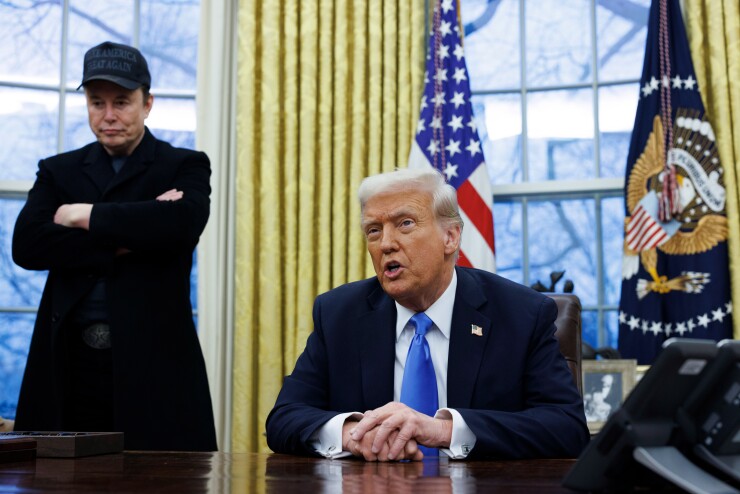
We in the United States enjoy a very rare air indeed, though we don't always appreciate it. The U.S. has dominated the global economy for more than a century, spurred initially by an infrastructure boom in the late 19th century and then by expansive global trade and finance after that. China is expected to
But it's not just the size of the American economy that makes it great. The U.S. is a place where it's
Enter President Donald Trump, who has wasted no time in enacting his agenda to reduce the size of the federal government. Through the auspices of the Department of Government Efficiency — formerly the U.S. Digital Service, which is
The CFPB has been a disfavored agency among Republicans — and to a more nuanced degree, banks — for most of its history. Yet Trump has been able to dismantle the bureau root and stem over the course of a few weeks, results that prior efforts, either through
The short answer is because the CFPB — and by extension most other federal agencies — exist because Congress told them to exist, and legal scholarship has heretofore presumed that Congress alone wields the power to tell an agency not to exist. That does happen sometimes, as it did for the Office of Thrift Supervision after 2008 and for any number of defunct agencies — like the Board of Tea Appeals or the U.S. Revenue Cutter Service — over our long history. Thus the shuttering of an agency like the CFPB would seem to contradict Congress' power to direct the executive branch in what to do. The administration's actions have thus
What comes next is anyone's guess, but the president and those around him have been laying track for the argument that not only are their actions legal, but also that they will not change course even if courts disagree. Vice President JD Vance
There is some precedent for a president to ignore the judicial branch. Abraham Lincoln famously suspended habeas corpus during the Civil War, and when the Supreme Court told him he couldn't do that, he did it anyway. More recently, the Supreme Court struck down President Joe Biden's attempt to cancel up to $400 billion in student loans, saying he overstepped his authority. The Biden administration then proceeded to create additional student loan programs that included forgiveness, one of which was
And Trump hasn't yet rejected a court ruling, and it very well may not happen. But banks should be concerned if a president refuses to act within the checks-and-balances system upon which our government was founded. So far, at least as far as I can tell, they haven't.
That may be with good reason. As I mentioned, none of this has quite happened yet. The judicial process is a deliberative one that takes time, and even if a lower court judge strikes down an action or upholds it, an appellate court gets its turn to take a look. The moment of truth is when the Supreme Court issues an order and the president defies it, and that could take years. A lot of things can happen in that interval, and the wise thing to do may be to time your swing to meet the pitch.
But while they are waiting for their moment and hoping it never comes, banks should be aware of how dangerous it would be for the United States to go down this path. If the president can flout the law with impunity, then any number of assumptions that go into the business of banking would be thrown into question, and legal or legislative recourse — banks' primary means of defense against
There is one check in our system that the administration can't control, and that is the performance of markets. As I said, the U.S. has some of the deepest and most liquid markets in the world because we've always been a safe place to do business. If that ceases to be the case, investment and commerce will go elsewhere, and the banks and other financial firms that remain will be doing business in a very different environment. In other words, if banks are waiting to know for sure that the administration will not obey the rule of law to say something, they may be waiting too long.






